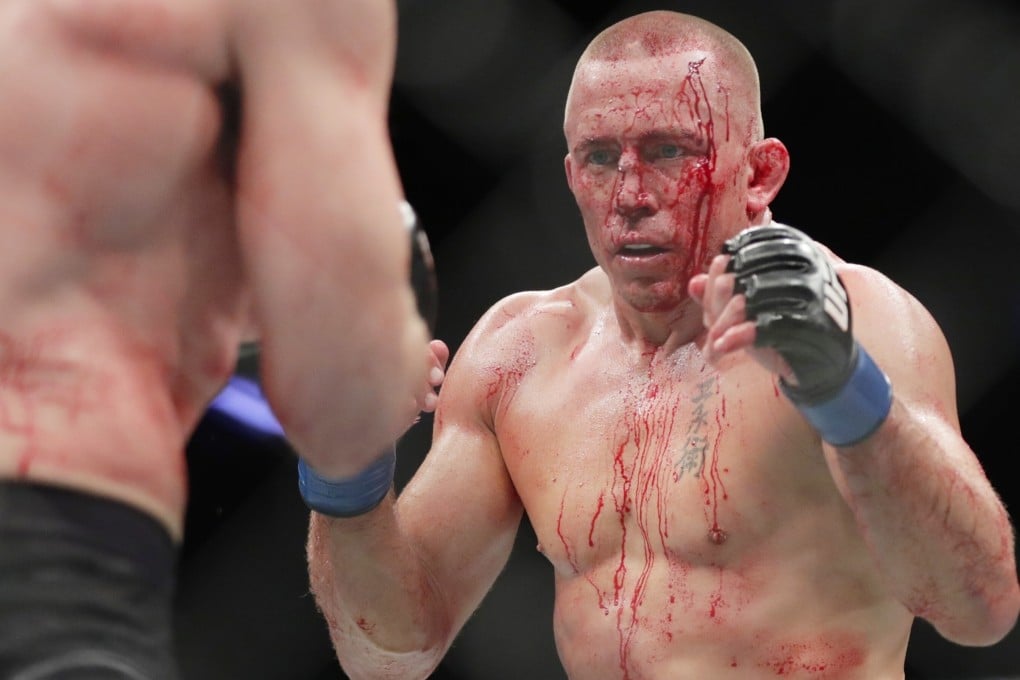UFC’s Georges St-Pierre says Bruce Lee changed his life – ‘I won a lot of fights from what he taught me’
- UFC legend reveals Lee taught him to become ‘the perfect nemesis’ as ESPN’s 30 for 30 ‘Be Water’ returns spotlight to martial arts superstar
- ‘I used a lot of his tricks,’ St-Pierre says – ‘he always said use your longest weapon against the narrowest point of your opponent’

Georges St-Pierre believes his Hall of Fame career would never have happened if not for Bruce Lee and his famous words of inspiration: “Be water.”
It was a philosophy for life as much for combat and St-Pierre revealed he looked to Lee when he was plotting his rise in MMA, a journey that would take in both the UFC’s welterweight and middleweight titles, an overall record in the sport of 26-2, and, coming soon, a place in the UFC’s Hall of Fame.
“Bruce Lee changed my life,” St-Pierre told the Post. “He always said be the perfect nemesis of your opponent. If he is a wrestler, strike him. If he is a striker, wrestle him. Fight him out of his comfort zone.
“I believe I was a champion in my sport not because I was the best, it was because I was able to transform myself into the perfect nemesis of my opponent. Bruce Lee said ‘be like water’, and that’s what I was. It was all there in his philosophy.”
St-Pierre is among a modern generation of UFC fighters who have looked to Lee as a role model in terms of how they hold themselves both inside and outside the Octagon. “He was an inspiration, even though he came before I was born,” said the Canadian fighter.
Those words – “Be water” – were adapted by Lee in a speech on a TV chat show, and taken from the script for the 1960s series Longstreet, in which he co-starred. The point he was trying to make is that people should adapt to their surroundings, and to the situations they find themselves in. They’ve reappeared this week as the title of a new documentary, screening as part of ESPN’s 30 for 30 series on Sunday night (US time).